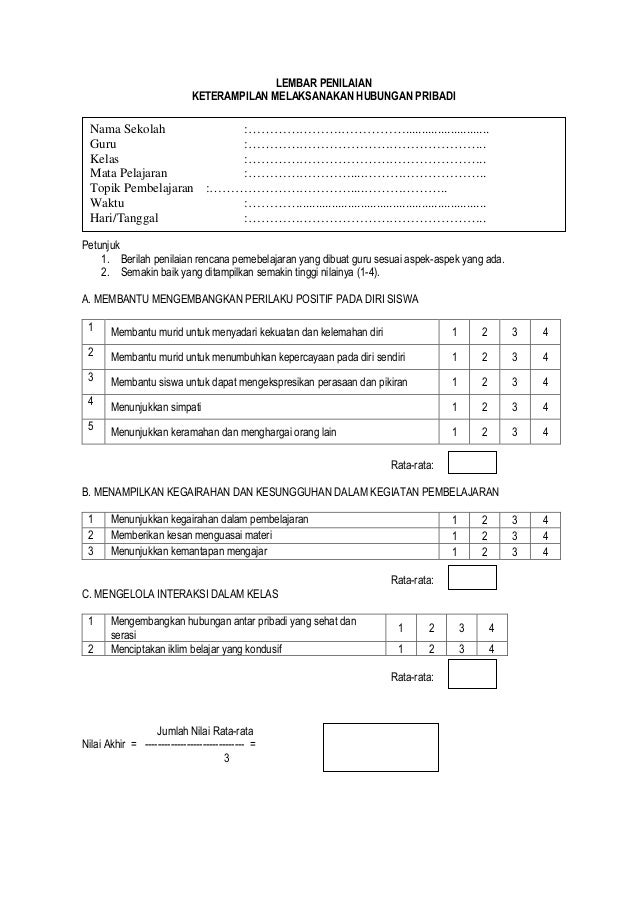Program Supervisi Kepala Sekolah Sma 30

Testovij kontrolj znanj ukransjka mova ta lteratura 5 klas vdpovd 2. Agar pelaksanaan Supervisi Akademis Tahun Pelajaran 2010/2011 ini berlansung efektif dan dapat memvisitasi seluruh guru mata pelajaran maka petugas supervisi terdiri atas: Kepala Sekolah, Pengawas Pembina, Wakil Kepala Sekolah dan Guru-Guru Senior yang kompeten dan dianggap layak dan mampu melaksanakan Supervisi.
• Oce Datu Appulembang 2017-08-01 Full Text Available The objective of this research was to discover the process used in solving a superitem test which consisted of 4 stages according to the SOLO (Structure of Learning Outcomes Taxonomy, namely unistuctural, multistructural, relational, and extended abstract, and reviewed using the cognitive impulsive and reflective style. The research was qualitative research. The main instrument of the research was the researcher himself guided by a superitem test, an impulsive-reflective cognitive test namely MFFT (Matching Familiar Figure Test, and a valid interview guideline. The subject of this research was the students of class X1 at SMA Negeri 1 Makale Tana Toraja consisting of four students in which 2 subjects were with cognitive impulsive style and 2 subjects with cognitive reflective style. The data was collected by giving a superitem test which was verified with an interview. • Margot Chima 2016-06-01 Full Text Available Background: Objective structured clinical examinations (OSCEs have been used to assess the clinical competence and interpersonal skills of healthcare professional students for decades.
However, the relationship between preclinical (second year or M2 OSCE grades and clerkship performance had never been evaluated, until it was explored to provide information to educators at the University of Nebraska Medical Center (UNMC. In addition, the relationship between M2 OSCE communication scores (which is a portion of the total score and third-year (M3 Internal Medicine (IM clerkship OSCE scores was also explored. Lastly, conflicting evidence exists about the relationship between the amount of previous clinical experience and OSCE performance. Therefore, the relationship between M3 IM clerkship OSCE scores and the timing of the clerkship in the academic year was explored.
Db technologies opera 415 manually. Methods: Data from UNMC M2 OSCEs and M3 IM clerkship OSCEs were obtained for graduates of the 2013 and 2014 classes. Specifically, the following data points were collected: M2 fall OSCE total, M2 fall OSCE communication; M2 spring OSCE total, M2 spring OSCE communication; and M3 IM clerkship OSCE total percentages. Data were organized by class, M3 IM clerkship OSCE performance, and timing of the clerkship. Microsoft Excel and SPSS were used for data organization and analysis. Results: Of the 245 records, 229 (93.5% had data points for all metrics of interest. Significant differences between the classes of 2013 and 2014 existed for average M2 spring total, M2 spring communication, and M3 IM clerkship OSCEs. Retrospectively, there were no differences in M2 OSCE performances based on how students scored on the M3 IM clerkship OSCE.
M3 IM clerkship OSCE performance improved for those students who completed the clerkship last in the academic year. Conclusions: There were inconsistencies in OSCE performances between the classes of 2013 and 2014, but more information is needed to determine if • Chima, Margot; Dallaghan, Gary Beck 2016-01-01 Objective structured clinical examinations (OSCEs) have been used to assess the clinical competence and interpersonal skills of healthcare professional students for decades. However, the relationship between preclinical (second year or M2) OSCE grades and clerkship performance had never been evaluated, until it was explored to provide information to educators at the University of Nebraska Medical Center (UNMC). In addition, the relationship between M2 OSCE communication scores (which is a portion of the total score) and third-year (M3) Internal Medicine (IM) clerkship OSCE scores was also explored. Lastly, conflicting evidence exists about the relationship between the amount of previous clinical experience and OSCE performance.